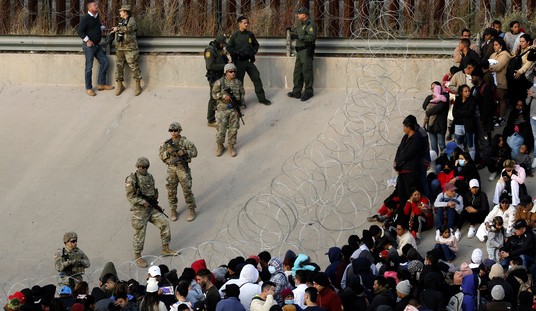As I've noted before, I was educated in biology, having a Bachelor's in Biology. I also served some time in Uncle Sam's colors, during which time I regularly took training and underwent exercises in what the Cold War Army called NBC - Nuclear, Biological and Chemical Warfare, which we euphemistically called "Nukes, Bugs and Gas."
All of those are considered "weapons of mass destruction." And of the three, bugs always scared me more than the others. Why? Both nukes and gas, of course, not only kill with the initial strike but can have nasty after-effects that can last months or years. But bugs don't gradually fade away. They are self-reproducing, self-disseminating, and self-perpetuating. Most viruses, yes, gradually become less virulent over time, but an engineered virus? That may indeed be a whole different cup of tea.
Senator Rand Paul (R-KY), who, I remind you, is a medical doctor in addition to being the junior senator from Kentucky, recently spoke to Newsmax about the possibility of a major, engineered pandemic.
"The only thing we were lucky with COVID is that the death rate was 0.3%, which was still a lot of people and I don't want to downplay that," Paul said on Newsmax's "National Report." "But they're working with viruses in the lab that have 5% to 50% mortality. If a virus escapes with 50% mortality, it'll be worse than the Black Plague in the 14th century when a third of Europe died.
"If a third of America dies or a third of the world dies, there will not be potable water. There won't be chlorine in the water. There won't be the ability to feed people; there will be war and rioting in the streets, and there won't be enough food and the society would descend into chaos if half the people died on the planet."
One of the most famous plagues in history, Europe's Black Death, ran from 1347 to 1351 and is estimated to have killed 25 million people, or (more or less) one-third to half of Europe's population at the time. But consider the state of European life and culture in the 14th century: The vast majority of the population consisted of subsistence farmers, with some tradesmen and merchants living in towns and cities - and the nobility in their castles and estates. There was little or no infrastructure to maintain, no massive, complex power grids, no highways or railways, almost no international travel, and certainly no internet; losing 50 percent of the population in 1351 left the remaining 50 percent bereaved, many of them likely sickened (not even the Black Death had a 100 percent fatality rate), but in the end, their society wasn't changed all that much. There were still fields to be plowed, iron to be mongered, and peasants to be oppressed by the nobles.
The oppression part, of course, never changes, plague or no plague. There's a lot of money in being among the ruling class; this was as true then as it is now.
See Related: Too Clever by Half: Fauci Testifies Before Coronavirus Subcommittee, Continues to Play Semantics
Consider now the state of our modern world. Those of us who are fortunately enough to live in developed countries - the United States, Canada, Japan, Taiwan, most of Europe, Australia, and New Zealand, for example - exist atop an enormous high-tech house of cards, where one tap anywhere on the stack could bring everything sliding down to ruin. As Sen. Paul points out, things following a plague with 50 percent mortality would be catastrophic. Forget the internet, there will be no electricity, no clean water, and no food. Our cities will collapse into ruin, with rioting, looting, and open warfare in the streets. Whatever remains of the government, any government at any level, will be unable to maintain anything resembling order. Whoever survives the collapse of the cities will flood into the countryside, starving, sick, weak, and angry. Those of us out in the country, should we survive the plague, will be faced with an angry, dirty, starving horde, and our only hope would be in having enough ammo to fight them off - assuming we haven't succumbed to the plague ourselves.
There is nothing about this that will end well. And we're paying for the research that may lead us to this ruin. As Sen. Paul pointed out:
Paul said that although the United States has stopped funding the Wuhan Institute of Virology, "there is still funding going on in other parts of China."
"To my knowledge, there's still subcontracts that go through American universities to military research in China," he said. "So, all of the money we send to China should stop. May not make them stop doing this crazy research, but that should stop."
Beyond that, there are "at least 12 different laboratories in the United States doing gain of function research," Paul said.
COVID-19 caused panic in the governments of the world, but it ended up being a flash in the pan. The most lasting effect that the virus seems to have had was to enable and encourage power-seeking politicians.
See Related: Newsom Tried to Use the Pandemic to Create a Progressive Paradise; Now CA's Facing a $68 Billion Deficit
But the next one?
Biological weapons have always scared the ever-loving bejeebers out of me. I'm a biologist; I understand all too well the implications of a biological weapon and the havoc one could wreak. And, while the First World War was a war of chemists, and the Second World War was a war of physicists, the next global war may well be a war of biologists. And if it is, it has the potential to make the Black Death look like the sniffles.














